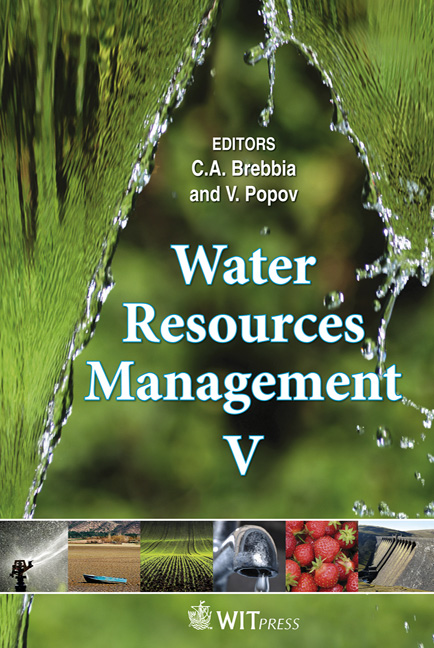Management Of Irrigation Schemes In Algeria: An Assessment Of Water Policy Impact And Perspectives On Development
Price
Free (open access)
Transaction
Volume
125
Pages
12
Page Range
503 - 514
Published
2009
Size
409 kb
Paper DOI
10.2495/WRM090451
Copyright
WIT Press
Author(s)
K. Laoubi & M. Yamao
Abstract
To enhance the performance of irrigation schemes, the Algerian government has adopted significant reforms. Structural reform has involved the decentralization of water resource management and the establishment of an autonomous irrigation agency. Regulatory reform has focused on water pricing with the goal of cost recovery. In addition, the government earmarked public investment for a ten-year integrated water resource management initiative. Hence, the general objective of this paper is to assess the effects of water reforms on the performance of irrigation scheme management in Algeria. We used various performance indicators to evaluate two selected irrigation schemes: the East and West Mitidja. The results showed that the water policy implemented did not create a sustainable environment for the irrigation schemes. The lack of coordination between water agencies has led to poor monitoring of scarce watersupply services. Furthermore, the weak involvement of stakeholders as well as the indifference of local administrations exacerbated irrigation management issues. The water price did not reflect the total cost of supply, and the maintenance budgets in both irrigation schemes are below international and regional norms. This contributed to the deterioration of irrigation infrastructure, to greater water conveyance losses and to reduced delivery efficiency. Many factors were found to affect irrigation sustainability, such as fee collection constraints, water allocation constraints, land reform, disputes among members of the collective farms, inadequacy of the irrigation system components with regard to farm configuration, water theft, and acts of vandalism on the hydromechanic equipment. These constraints led to low equilibrium cycles for both schemes. Keywords: Algeria, water policy, irrigation schemes management, water management, sustainability.
Keywords
Algeria, water policy, irrigation schemes management, water management, sustainability





